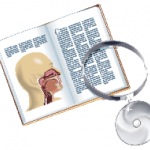 Background
Background
The role of bacterial infections in the etiology of stable chronic rhinosinusitis (CRS) is unclear. The advantages of nasal saline irrigation following endoscopic sinus surgery (ESS) are well documented. Nasal irrigation is also superior to nebulizers and sprays. Adding topical antibiotics to saline irrigation theoretically confers the additional advantages of direct delivery of antibiotics in high concentrations to the diseased mucosa with a low risk of systemic adverse effect. In addition, ESS provides abundant sinus mucosal access and allows increased distribution of the topical antibiotic, improved aeration of the sinuses, and return of normal mucociliary clearance function.
Explore This Issue
September 2015Best Practice
The evidence level of studies of using topical antibiotics in treating CRS is low, and it is not recommended as a first-line treatment for routine CRS. There is not enough evidence to support the use of topical antibiotic use following ESS. However, higher-level evidence exists in studies that use topical antibiotics after ESS with culture-directed therapy for treating acute exacerbation of CRS (Laryngoscope. 2014;124:2653-2654).